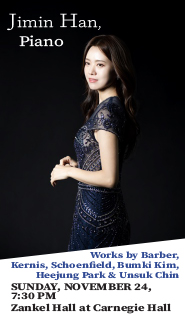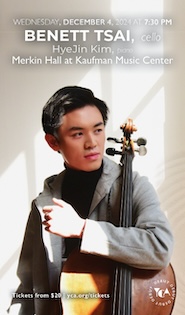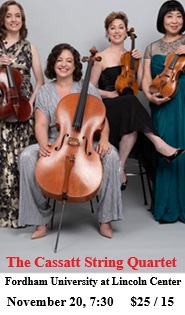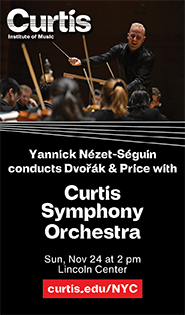American Music Project to launch with world premiere by Chicago composer
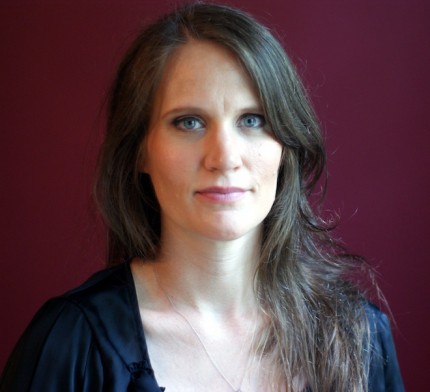
Amy Wurtz’s Piano Quintet will receive its world premiere October 5 at Ganz Hall in the inaugural concert of the American Music Project.
UPDATED
[Read the New York Times article about the American Music Project here.]
In an effort to connect American audiences with this country’s finest yet little-heard composers, Chicago Classical Review founder Lawrence A. Johnson announced today that he is creating the American Music Project, a nonprofit foundation to encourage, facilitate and underwrite performances of existing American works and to commission substantial new music from American composers.
“I’m starting this foundation because I feel American music is underrepresented in American concert halls,” said Johnson, a veteran music journalist and critic. “I think we have a real responsibility to present this music, and I believe many of these works would become standard repertory if audiences only had a chance to hear them.”
The American Music Project will launch officially with a concert of American music to take place October 5 at Ganz Hall in Chicago performed by the Chicago Q Ensemble. The program will feature Charles Ives’ Violin Sonata No. 4, David Diamond’s String Quartet No. 2 and Irving Fine’s Fantasia for string trio, the last marking the Fine centennial year.
The main item on the program will be the world premiere of the foundation’s first commission, the Piano Quintet by Amy Wurtz with the pianist-composer joining the Q Ensemble for the event. The American Music Project also hopes to present the program in Boston and New York in the spring of 2015.
One goal is to ensure that good compositions keep circulating after their premieres since, as Johnson put it, “nobody gets excited about doing a second or a third performance. Ninety percent of them disappear,” he said of new works.
That scarcity of performance extends to a large body of superb but little-heard American repertory, said Johnson, by gifted composers who are not among the trinity that dominates homegrown concert programming: Bernstein, Copland, and Gershwin.
Johnson pointed to William Schuman, Charles Ives, David Diamond, Walter Piston, Paul Creston, and Peter Mennin as some of the composers whose absence from concert-hall repertory represents “a vast vacuum in our culture.”
“That’s our musical legacy and, unfortunately, I think it’s being lost by not being performed and not being aired, and people not being able to hear it,” he said.
Johnson commissioned the Piano Quintet after being impressed by Wurtz’s string quartets as recorded by the Q Ensemble. “Amy’s music is lean yet expressive,” he said. “There’s a stoic, lyrical element that feels very much like a part of the American tradition.”
As a “facilitator and encourager of American music,” Johnson said the foundation will fund musical organizations, orchestras, opera companies, chamber ensembles and presenters who take on American repertory for events starting in the fall of 2015. They can submit proposals for American projects and, if they meet the foundation’s criteria, will receive financial support.
“If, for example, somebody wants to put on a festival of American string quartets, or a cycle of American symphonies, we would provide a check to underwrite some of it,” said Johnson.
The foundation will also help in suggesting repertory and planning programs. “A single performance of Rhapsody in Blue or the Candide Overture isn’t going to do it,” said Johnson. “Presenters should think ambitiously and imaginatively.”
He hopes to give music organizations room to challenge current conventional wisdom about what kinds of classical music audiences will pay to hear. He said the American Music Project wants to step in where presenters may feel constrained by their budgets and by the risks associated with selling too few tickets to a concert with less-familiar American repertory.
Johnson said the country’s classical landscape is not without advocates of American music. He cited conductors such as Leonard Slatkin, Alan Gilbert and Michael Tilson Thomas. Around Johnson’s Chicago home base, he lauds Carlos Kalmar, artistic director of the Grant Park Music Festival and David Danzmayr, music director of the Illinois Philharmonic Orchestra, as two podium leaders firmly devoted to American rep.
“There are pockets of people committed to performing American repertory,” said Johnson. “But I think the way is open for an organization or foundation to facilitate much more.”
Chicago-based composer Wurtz said that the foundation has set itself a formidable task. Even within the “relatively small” field of contemporary classical music, said Wurtz, “There are still so many living composers, and we are all trying to do our thing one way or another. So it’s a huge challenge to become part of the standard repertoire.”
Wurtz noted that some of the more acclaimed American composers, such as Pulitzer Prize recipient Bolcom and Morton Feldman still haven’t cracked the regular concert-hall repertory in a sustained way.
“So, yes, it would be lovely to be accepted, to break into the standard repertoire,” said Wurtz. “But I think that the main requirement is a lot of legwork on the composer’s part. Because who else is going to do it?”
She described her commission from the American Music Project as a gift of time as much as money. Funding allows her to concentrate on writing music, and still meet her daily obligations as a music teacher, performing musician and parent, while the foundation takes on all the work of promotion, organization and dissemination. “In my life and in a lot of composers’ lives, the challenge is that we’re all pulled in so many different directions,” said Wurtz.
The foundation has already chosen its next commissioned composer, who will be announced near the end of this year. Also William Bolcom, Carlos Kalmar, Susanna Mälkki and Leonard Slatkin have agreed to serve on the AMP Advisory Board.
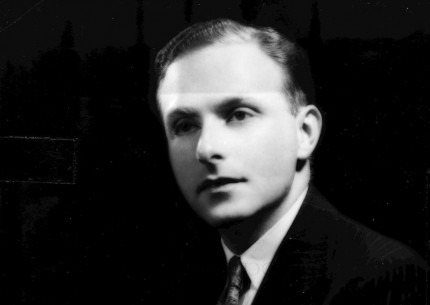
Irving Fine’s Fantasia for string trio will be performed October 5 to mark the Boston composer’s centennial year.
Johnson said he is in the early stages of fundraising for the American Music Project and hopes to reach $500,000 by spring of 2015, with an eventual goal of a standing endowment of $1 million.
Meanwhile Johnson will continue in his present role as publisher, editor and lead Chicago critic for the five Classical Review sites he has founded beginning in 2009.
Taking on the necessary fundraising will be “daunting,” he said, but he believes the product he is touting — a vast American repertoire of great variety, quality and depth — will help him persuade potential donors.
Johnson points to a performance last spring of William Schuman’s Sixth Symphony by the Chicago Symphony Orchestra led by Slatkin as representing the kind of American music he said deserves to enter the standard repertory. Written during World War II, and rarely played since, Schuman’s Sixth is “a really tough, gritty astringent piece — a dark piece,” said Johnson — and, he added, one “worthy to stand with the rest of the Western European classical music repertoire.”
Johnson said if the American Music Project can have a hand in getting works of that caliber into more and more concert halls, “the foundation will have achieved its mission.”
The American Music Project will present the world premiere of Amy Wurtz’s Piano Quintet 2 p.m. October 5 at Ganz Hall in Chicago performed by the composer and Chicago Q Ensemble. The program will also include Charles Ives’ Violin Sonata No. 4, David Diamond’s String Quartet No. 2 and Irving Fine’s Fantasia for string trio. For further information and to order tickets, go to americanmusicproject.net.
Sean Piccoli is a New York-based freelance writer covering arts, culture and politics.
